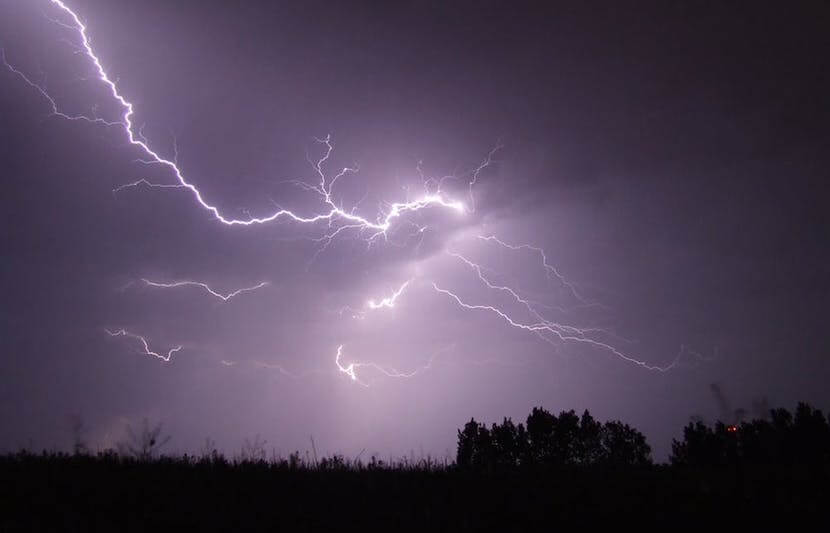Extreme weather events are becoming much more destructive.
In the past six years Americans have experienced four of the five costliest hurricanes in U.S. history.
But extreme weather events, alone, are not enough to convince skeptics that humans are causing climate change, researchers from the University of Exeter, University of Michigan and University of Texas find.
Additionally, the researchers found that whether people report experiencing long-lasting weather events like cold fronts or drought is influenced by political bias and partisan news reporting.
“These findings underscore a limited role for extreme weather experiences in climate beliefs, and show that events more open to interpretation, such as droughts and polar vortex disturbances, are most likely to be seen through a partisan lens,” the researchers wrote in the paper describing the study.
The researchers found that people who consumed liberal-leaning media sources were more likely to report experiencing a polar vortex than their Republican counterparts.
But sometimes, weather is too extreme to ignore.
In the American Northeast, where polar vortexes hit very hard in 2014 and 2015, partisanship did not change people’s likelihood of reporting the extreme weather they experienced, the researchers found.
But bias goes both ways.
People who regularly consume liberal-leaning news sources, such as the Huffington Post or Daily Show, said they experienced drought more often than national weather records suggest.
“Very extreme weather accompanied by constant media coverage is harder for people to deny,” Benjamin Lyons, a postdoctoral research fellow at Exeter, said in a statement.
“But on the other end of the scale, droughts can take longer to have an effect, so people have some difficulty perceiving their onset and this may allow them to bring their biases to the table,” he continued.
The study
The researchers surveyed 3,057 people across the U.S. about the extreme weather they had experienced over a 5-year time span.
The researchers asked the subjects if they believed in climate change, the human causation of it and the science backing it up. They also asked where they lived.
The researchers then compared the answers to official weather reports from the Storm Events Database compiled by National Oceanic and Atmospheric Administration’s (NOAA) National Weather Service (NWS) for specific regions during specific time periods.
Of those surveyed, 42 percent reported experiencing a drought, 29.3 percent reported a flood, 21.7 percent reported a polar vortex, 19.8 percent reported a tornado, and 16.7 percent reported a hurricane.
The NOAA reported the weather events to be much different.
The data showed that, in fact, only 4.4 percent of people lived in a county where a drought was recorded over the time span, 21.3 percent lived where there was a flood, 25.3 percent lived where there was a tornado, and 4.3 percent lived where a hurricane occurred.
The results also show that the U.S. is still divided in regard to climate change.
While 59.2 percent of survey respondents believe that the Earth’s average temperature has been rising over the past decades, only 74.2 percent of those believers agree that it was caused by human burning of fossil fuels.
“This research shows people’s perception of extreme weather can be processed through partisan lenses,” Lyons said in a statement.
“This means efforts to connect extreme events with climate change may do more to rally those with liberal beliefs than convince those with more conservative views that humans are having an impact on the climate,” he continued. “However, it’s important to note that we take a big-picture look rather than focus on specific events. Particularly intense events — a 100-year flood or catastrophic hurricane — might be most capable of influencing attitudes.”



